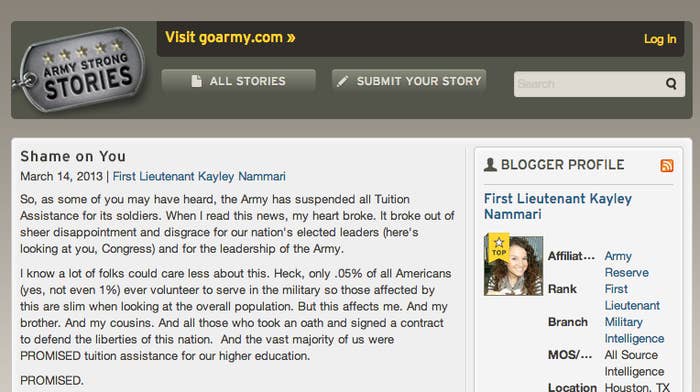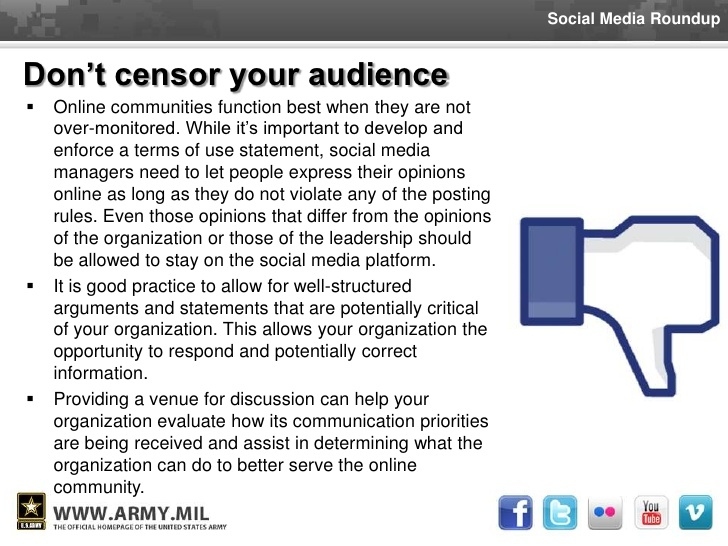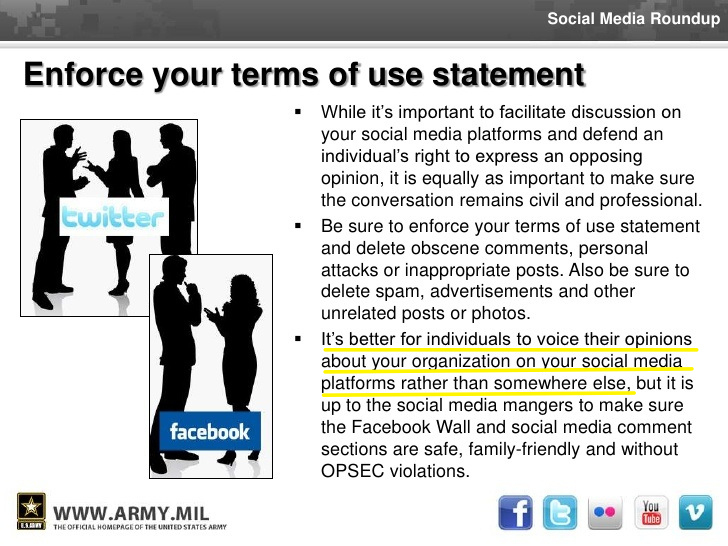
As part of a new recruitment program, the Army is asking soldiers to post about their personal experiences in the military on Army Strong Stories, an official Department of Defense website. Since the site was founded in 2008, most of the posts have been positive. But not all; some recent posts have been scorchingly angry.
This, it turns out, is part of the plan. Modern potential recruits, the thinking goes, have powerful bullshit detectors. The internet — and social media — has given them a clear, largely uncensored view of war and life in the military, making traditional recruitment advertising seem inauthentic. "We really do believe in an open and honest forum about Army life," an Army spokesperson told BuzzFeed. "We want you to tell the true story. That's the power behind the platform. Without [the negative] it wouldn't be credible."
But "honest" isn't the same thing as uncensored when it comes to an Army-run website. While the organization appears to be giving an unvarnished view of Army life, its own regulations are encouraging soldiers to self-censor.
Opening a free public forum is a new direction for the military. But the invitation for openness puts soliders in murky waters. Servicemen and women are legally limited in what they can say about the military, and not just regarding security issues. Historically, the military has cracked down on soldiers who voice opinions that the military doesn't agree with — particularly political speech and anti-war sentiments.
The Army says it reviews all the Army Strong Stories posts, but only after they have gone up. Officials say they have removed some posts that endangered operational security (OPSEC) because they included details about soldiers' locations and schedules within descriptions of daily life. The authors were asked to repost edited versions, but there were no further actions taken against them. "Most soldiers know better," said an Army spokesperson. "We encourage their openness as long as they are adhering to OPSEC guidelines, which they are very cognizant of."

As for political speech: "We report to the president. Speaking against him would go against the UCMJ," says the Army. "Army Strong is all talk about military experiences not for politics."
However, when it comes to criticizing the president about recent cutbacks with the sequester, specifically the suspension of the Tuition Assistance Program, the military is allowing open criticism.
Last week, Military Intelligence First Lieutenant Kayley Nammari wrote a post entitled Shame On You about the suspension:
When I read this news, my heart broke. It broke out of sheer disappointment and disgrace for our nation's elected leaders (here's looking at you, Congress) and for the leadership of the Army…
Please, write to your Senators, your Representatives, your mayor, our President and tell them that this is unacceptable. It's a slap in the face to the brave, selfless men and women in uniform. It's everything the Army values is not: NOT loyal, NOT doing their duty, NOT respectful, NOT in the least bit dealing with selfless service, NOT honorable, NOT an ounce of integrity, and most certainly NOT having the least bit to do with personal courage.
And just for kicks, offer to pitch in for a ticket to Afghanistan. One way of course because money is tight after all.
Nammari is clearly criticizing the government and the military leadership, and may well be in violation of UCMJ. Asked why they didn't take down Nammari's post, the Army told BuzzFeed that individual soldiers' actions are evaluated on a case-by-case basis by their commanders. They pointed out that Nammari is in the Inactive Ready Reserve — i.e., not actively serving, but ready to be called up — which means she isn't subject to this type of UCMJ action. However, the military has retaliated against people in the Individual Ready Reserves for speaking out against the Iraq War.
Nammari is expressing popular opinion. She may also be expressing an opinion that the military wants people to hear: "We received similar feedback on official U.S. Army and GoArmy pages on our posts related to sequestration," the Army told BuzzFeed. "It is expected that soldiers will voice their concerns about the negative impacts of the current fiscal situation."
Instead of cracking down, the military is opening up on social media and asking people their opinions about the sequestration cuts. Chairman General Martin E. Dempsey even made a call on Facebook and Twitter for people to share experiences. In the age of social networking, the military can't avoid the spread of negative information, but at least this way, it's right under the military command's nose — and could potentially be used to its advantage.
Even by invitation, social media criticism is highly self-censored. Nearly a quarter of the responses to Dempsey were happy-birthday wishes.
This is to be expected — it's part of enlistment. When recruits join the Army, they temporarily forfeit some First Amendment rights. Under the Military Code of Military Justice (UCMJ), soldiers cannot disrespect a commissioned officer or use "unbecoming" language. They are required to be politically neutral, unless they are off duty, out of uniform, or they specify that they aren't speaking on behalf of the military. They are prohibited from using "contemptuous words" against the government, including Congress, governors, or state legislatures. For good measure, the military includes an extra article forbidding any speech that "threatens good order and discipline" or brings "discredit upon the armed forces," which the military described to BuzzFeed as a "catch-all for anything else that the others don't address."
The negative comments on Army Strong Stories tend toward complaints about things that wouldn't surprise potential recruits. Topics include many you might expect: tales of uncomfortable living conditions, bleeding through your boots in basic training, coping as a woman in a mostly male environment (though nothing about military rape). But each post includes a caveat about how much the writer loves the military. And the Army moves positive posts up the page, letting the more negative stories settle at the bottom, making them harder to find. It's a bit like a military reality show: based on real material, but edited from both sides of the lens.
"Just being negative is OK, but if it violates the UCMJ you can be liable and potentially punished," a spokesperson told BuzzFeed. "It isn't censorship, just professional conduct you would see in any industry."
Violating the UCMJ can earn you official non-judicial punishment, dishonorable discharge, or a court martial. It is under individual officers' discretion to dole out punishment on a case-by-case basis — which introduces a high level of arbitrary bias.
In reporting on soldiers who have spoken out against the war, I have found examples of commanders dolling out discretionary punishments for loose speech (threatening to have soldiers committed to psych wards, giving out contact information to abusive ex-husbands, humiliation during training, imposing a diet of bread and water, and assigning grim tasks, such as searching the pockets of dead bodies). One soldier, Tassi McKee, was suspended and stripped of her security clearance for signing an online petition voicing complaints about the war to Congress and speaking against the war to The New York Times. There have been no recorded court martials for political speech — soldiers will usually back down before the issue gets to that level.
When a soldier posts on the Army Strong Stories website, they're required to tell their commanders — people who are effectively in charge of their career. Soldiers undoubtedly tread carefully.
"I wouldn't be surprised to see informal extra-legal reprisal against people who speak out too freely on this site," says Kathleen Gilberd, executive director of the Military Law Task Force. "I would be less inclined that there will be prosecutions but I wouldn't rule it out. If I had a client, I would want them to think very carefully about what they say and how they say it."
The UCMJ applies to virtually all forms of public speech, social networking included. "We see it the same way as if they said it in formation or on a unit bulletin board," according to the Army. A spokesperson told BuzzFeed that Army Strong Stories hasn't taken down any posts for violating the UCMJ.
However, soldiers don't have to inform their commanders if they post on other sites — just Army Strong. "We don't have ... eyes on everything. It is impossible with more than a million people serving," an Army spokesperson told BuzzFeed. "We are educating soldiers and driving home the message that you can use social media, but use it at your own risk."
Such "educational" outreach can chill free speech, worries Gilberd. "That sort of reminder gets people in the military to read between the lines, that command isn't happy," she says.
Last February, the military added an extension to the UCMJ urging commanders to take proactive preventative measures if they see "signs" that a soldier might be going to advocate or participate in "future prohibited activities." Those activities include posting online about organizations that are "detrimental to good order, discipline, or mission accomplishment" or are "incompatible with military service." While much of the efforts are aimed at curtailing possible gang activity, the extension includes "fundraising, demonstrating or rallying" for organizations, suggesting limits on political activity. Even openly considering saying something online can be enough for a commander to "intervene."

There is another reason to encourage soldiers to use the military's own websites. The military's own social media best practices specifically encourage letting people vent on the military's social media sites, where they can supervise and correct any misinformation.
"Even those opinions that differ from the opinions of the organization or those of the leadership should be allowed to stay on the social media platform. This allows your organization the opportunity to respond and potentially correct information," reads their social media training material. "Providing a venue for discussion can help your organization evaluate how its communication priorities are being received and assist in determining what the organization can do to better serve the online community."
In other words, it gives the military the appearance of transparency without a corresponding loss of control. And loss of control is something the military will go to great lengths to prevent. Just ask Bradley Manning.
Correction: Army Strong Stories was started in 2008 not 2010 as previously stated.


